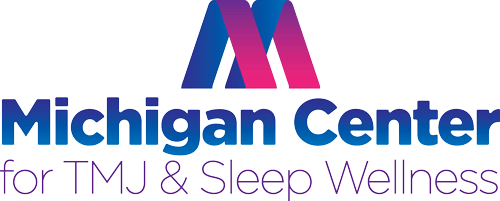Now seeing all patients, with enhanced safety protocols! Call (248) 480-0085
to schedule your appointment.
4550 Investment Dr. Suite 290 | Troy, MI 48098 |
(248) 480-0085
Jaw Pain
Jaw pain is one of the most common symptoms of TMJ. Most—but not all—TMJ sufferers experience some degree of jaw pain. The pain may be constant or it may come and go depending on your activity. The jaw pain may be a dull ache, a sharp stabbing pain, or even an electric jolt. It may be associated with jaw popping and clicking, or with a locked jaw. All these types of jaw pain responds to TMJ treatment.
If you are looking for relief from jaw pain in the Detroit area, please call (248) 480-0085
or email us
the Michigan Center for TMJ & Sleep Wellness for an appointment with TMJ dentist
Dr. Jeffrey Haddad.
Types of Jaw Pain Associated with TMJ
Although jaw pain is common in TMJ, it’s not a simple symptom. Instead, TMJ-related jaw pain comes in many forms and types, including:
- Muscle jaw pain
- Pain in the jaw bones
- Jaw joint pain
- Pinched nerve pain
Understanding the causes of these different types of jaw pain and their treatment can help you understand how your symptoms fit together and how TMJ treatment
can help.
Types of Jaw Pain Associated with TMJ
Although jaw pain is common in TMJ, it’s not a simple symptom. Instead, TMJ-related jaw pain comes in many forms and types, including:
- Muscle jaw pain
- Pain in the jaw bones
- Jaw joint pain
- Pinched nerve pain
Understanding the causes of these different types of jaw pain and their treatment can help you understand how your symptoms fit together and how TMJ treatment
can help.
Muscle Jaw Pain
Pain in the muscles is the most common cause of TMJ-related jaw pain. Opening and closing your jaw requires a team of muscles that work together. Ideally, these muscles should all find a position of maximum rest that works for all of them. However, it’s common in TMJ for the muscles to get out of balance, where a restful position for one is a stressed position for another, resulting in chronic exertion, which can be felt as facial pain. Tension headaches are also a common side effect of this type of jaw pain.
As the muscles work together inefficiently, they might recruit additional help from neck muscles, resulting in neck pain. The muscles might also clench frequently, trying to find a restful position, causing teeth clenching and tooth damage.
Pain in the Jaw Bones
If your muscles are constantly clenching your jaws together, they can cause excessive pressure on your teeth. This can lead to broken or worn teeth, but it can also cause the teeth to push hard into the bone, causing persistent soreness in the jaw. This kind of pressure can even lead to a loss of jawbone around the teeth.
Jaw Joint Pain
Another consequence of inefficiently working or conflicting muscles in the jaw is that they can dislocate your jaw joint or joints. When the cushioning disk in the jaw is pulled out of place, you might experience a number of symptoms, such as clicking or popping in the jaw joint
and irregular jaw joint motion that can progress to becoming a locked or immobile jaw. The cushioning disk is strong enough to take the joint pressure, but other tissues are not. When the disk is out of place, you will experience pain because the bones are grinding together or because they’re pinching down on the ligaments that are supposed to hold the jaw joint in place.
Other times, the dislocation of the jaw is actually the cause of your TMJ. If you experienced a jaw trauma or whiplash injury to the jaw, it might have set off the sequence of TMJ, including muscular imbalance and pinched nerves. Pain in the jaw joint is often accompanied by tinnitus and other ear symptoms.
Pinched Nerve Pain
Pinched nerve pain occurs because somewhere along the line your jaw system is pressing on a nerve. This can happen easily because of all the nerves in the area. Most often, this is felt as a sharp, stinging pain that can come and go suddenly. But it isn’t always.
Pinched nerve pain can take other forms such as tingling and numbness, ringing in your ears, or may be related to migraine headaches. Sometimes this is described as neuralgia, and it can have many other causes besides TMJ, so if you’re experiencing pinched nerve pain, we may refer you to another practice for treatment.
Jaw pain is a common, often integral symptom. With proper TMJ treatment, you can often see relief immediately, especially in the case of muscle activity or pinched nerves. To learn more about jaw pain relief in Detroit, please call (248) 480-0085
or email us
the Michigan Center for TMJ & Sleep Wellness.
All Rights Reserved © 2020 Michigan Center for TMJ & Sleep Wellness | Website by Pro Impressions Marketing Group
| Sitemap

